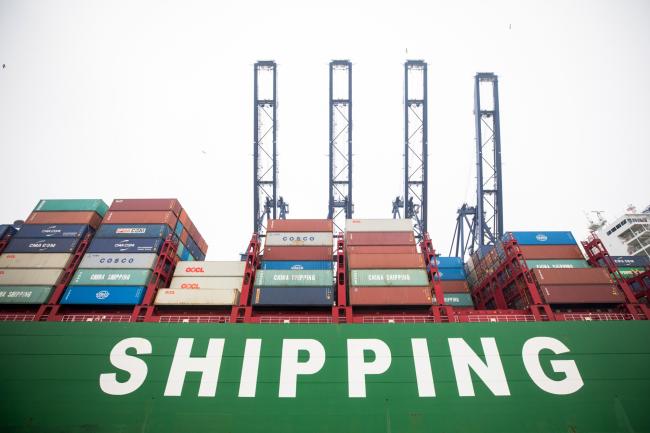(Bloomberg) -- Trade negotiators led by U.S. Trade Representative Robert Lighthizer and Treasury Secretary Steven Mnuchin will travel to Beijing next week, the White House said, as both sides work to reach a draft agreement by next month.
Talks starting next Tuesday “will cover trade issues including intellectual property, forced technology transfer, non-tariff barriers, agriculture, services, purchases and enforcement,” the White House said in a statement. Chinese officials led by Vice Premier Liu He planned to then head to Washington for discussions starting on May 8, the White House said.
The two sides are seeking to have a draft agreement by the end of May, a person familiar with the matter said, asking not be named discussing the private talks. Officials want to announce during Liu’s visit that they’ve agreed to a deal and details of a signing summit, people familiar told Bloomberg News earlier.
The U.S. and China have stepped up diplomacy in recent weeks to try to resolve their yearlong trade squabble, with officials working toward a face-to-face meeting between Presidents Donald Trump and Xi Jinping to ink the deal. Mnuchin has said that enforcement mechanisms will be reciprocal, and that the U.S. is open to “certain repercussions,” addressing one of the biggest sticking points in talks.
Enforcement Mechanism
One mechanism being discussed, U.S. officials have said, would require consultations between U.S. and Chinese officials over disputes, but ultimately allow either side to impose trade sanctions unilaterally. The deal might also see both sides agree to forego their right to retaliate or challenge any enforcement action by the other at the World Trade Organization.
“The intense meetings indicated that the two sides have the pressure and willingness to reach a deal,” said Zhou Xiaoming, a former Chinese Ministry of Commerce official and diplomat. “But whether a deal can be reached or not, depends on both sides needing to show understanding and make concessions.”
U.S. and Chinese officials have been in regular contact via teleconference since Liu last led a delegation to Washington in early April. The two sides are still haggling over an enforcement mechanism and what duties will stay in place or be removed.
Any trade deal between China and the U.S. must comply with multilateral rules, the International Monetary Fund said earlier this month. Not doing so may create economic risks for the Asian nation’s other major trading partners should China import less from them, the IMF said.
One option under consideration is to hold the leaders’ signing summit in Japan where Trump is due to travel in May to meet the country’s new emperor, Crown Prince Naruhito, a person familiar with the discussions said earlier. The president will return to Japan in June for the Group of 20 summit in Osaka.
(A previous version of this story was corrected to show that the next round of Washington talks start on May 8.)
